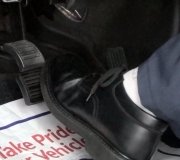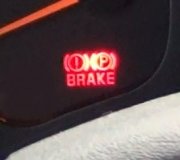Before I go to bleeding the brake system I did some power booster checking suggested in a Haynes repair manual; Haynes Ques.-1. Depress Brake pedal several times with engine off and make sure there’s no change in pedal reserve. Result - 1. No change in pedal, but it goes down a long way.
Haynes Ques.- 2. Depress the pedal and start the engine, if pedal goes down slightly operation is normal. Result – 2. Yes the pedal goes down slightly, but pedal initially goes down a long way.
Haynes Ques. - 3. Start engine and turn off after 1 – 2 minutes then depress the brake pedal slowly several times, if the pedal depress less each time the booster is airtight. Result – 3. After engine is turned off the first pedal depression is easy and deep, subsequent pedal depressions have more resistance and not as deep as first depression.
Haynes Ques. – 4. Depress brake pedal while engine is running then stop engine with pedal depressed. If no change in pedal reserve travel after holding pedal for 30 seconds the booster is airtight. Result – 4. No change in pedal position after 30 seconds, restart engine with pedal still depressed the pedal then goes to the end of its travel.
Any thoughts?
Craig
Wednesday, December 12th, 2007 AT 5:48 PM



